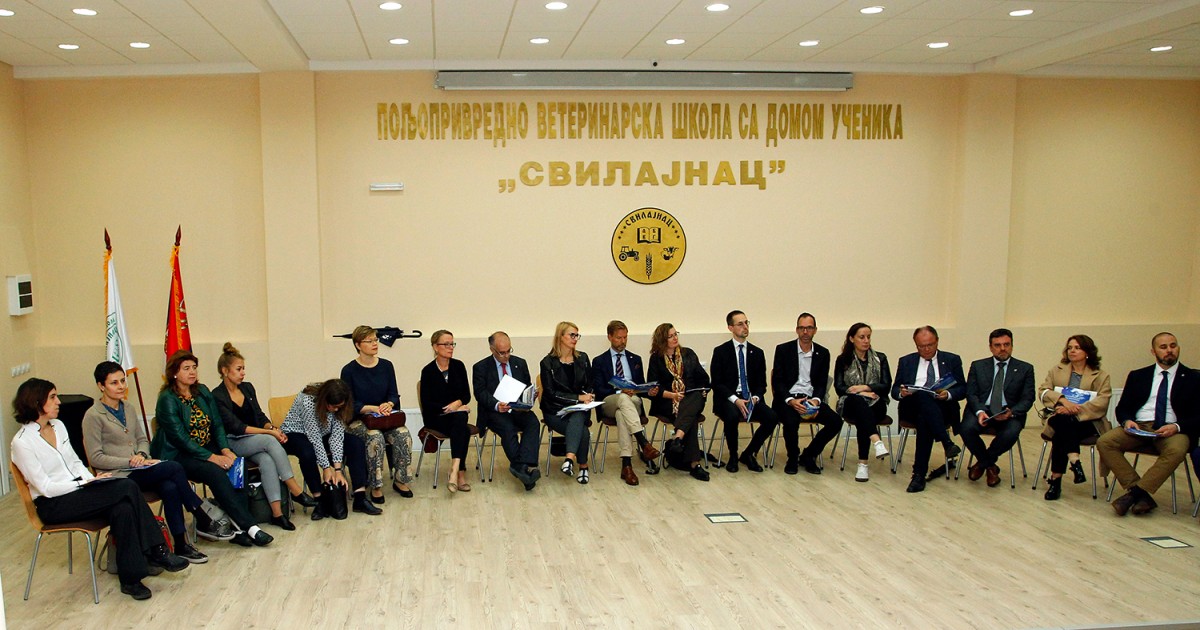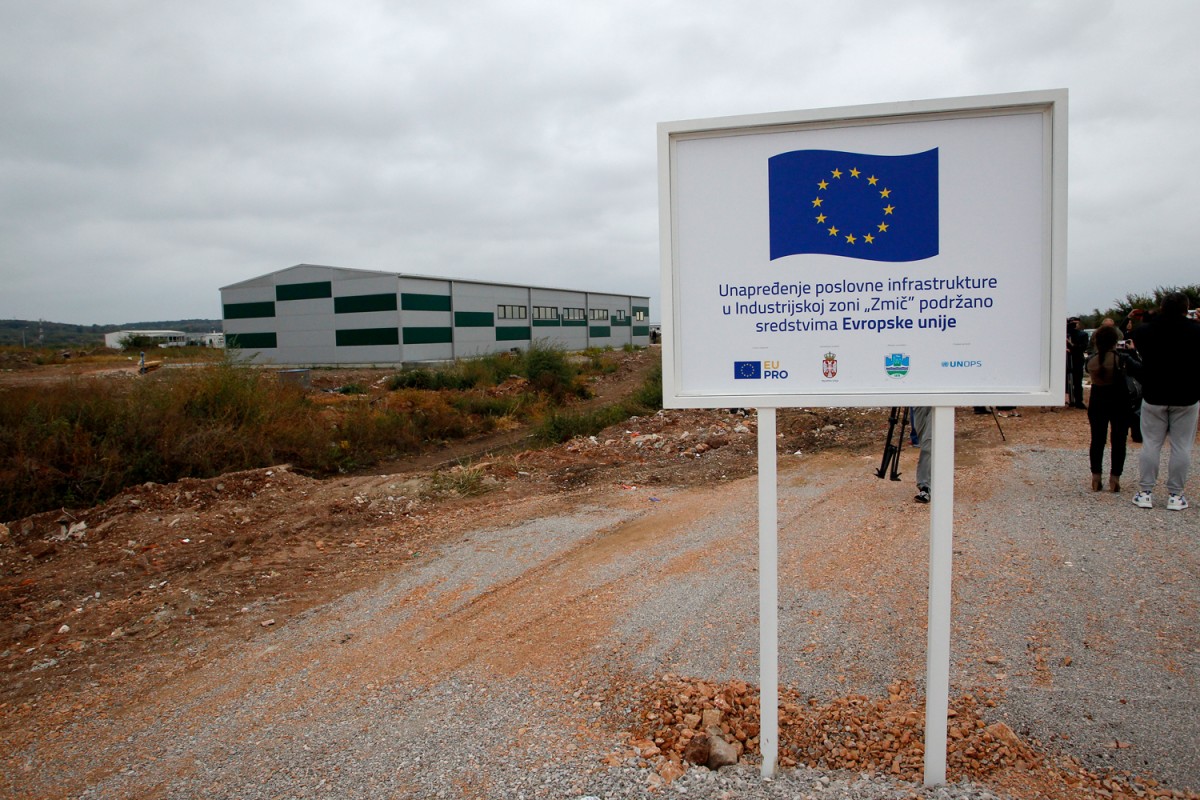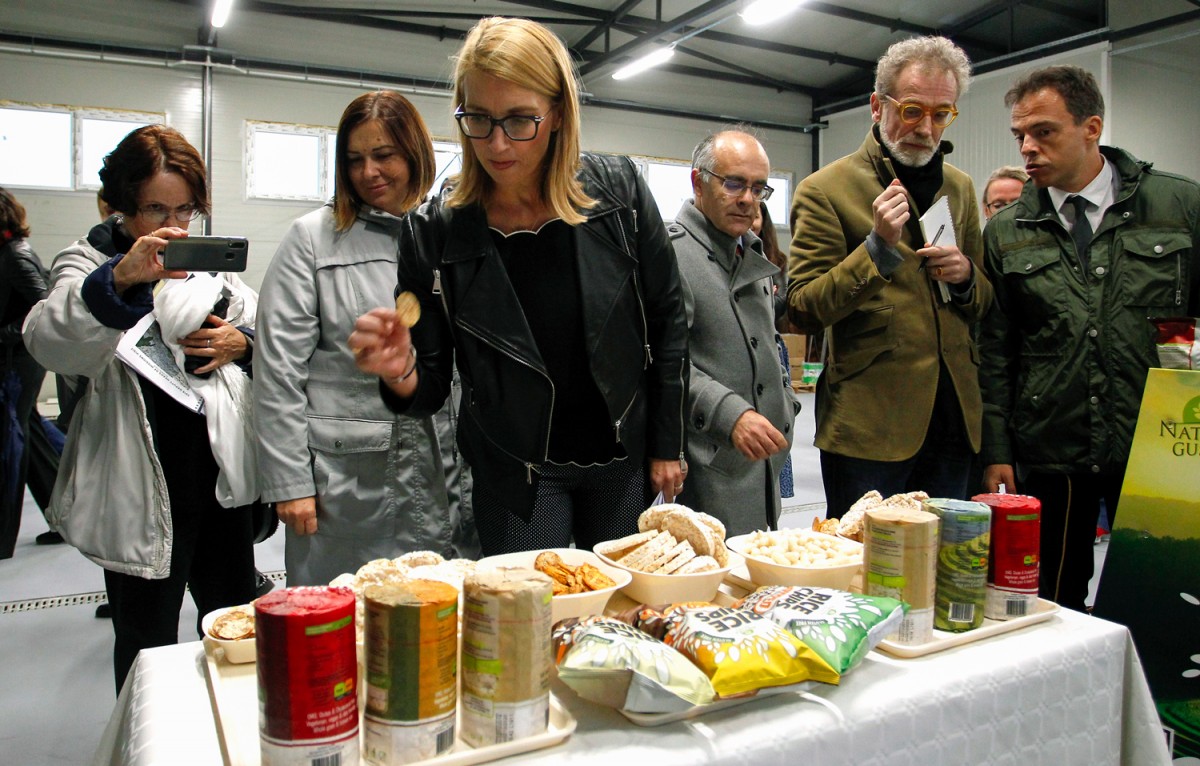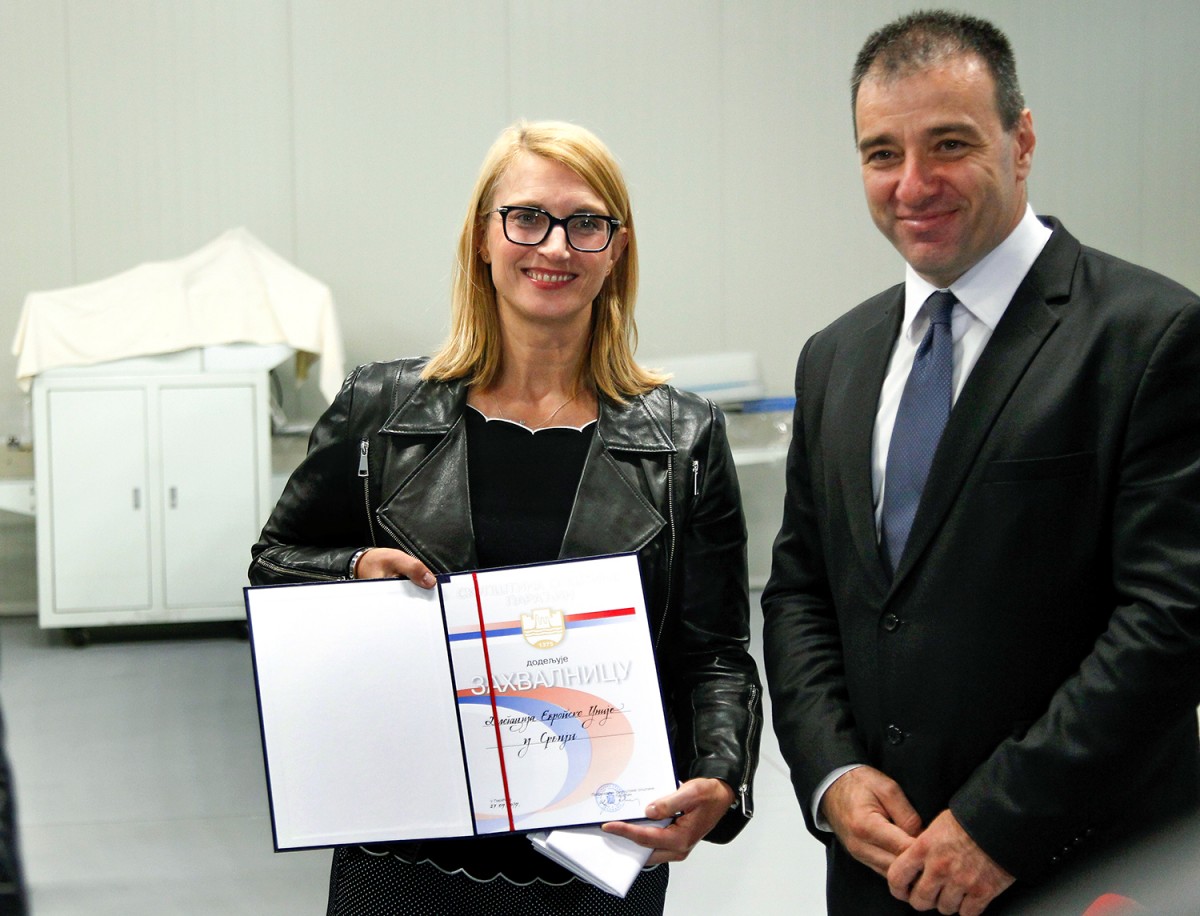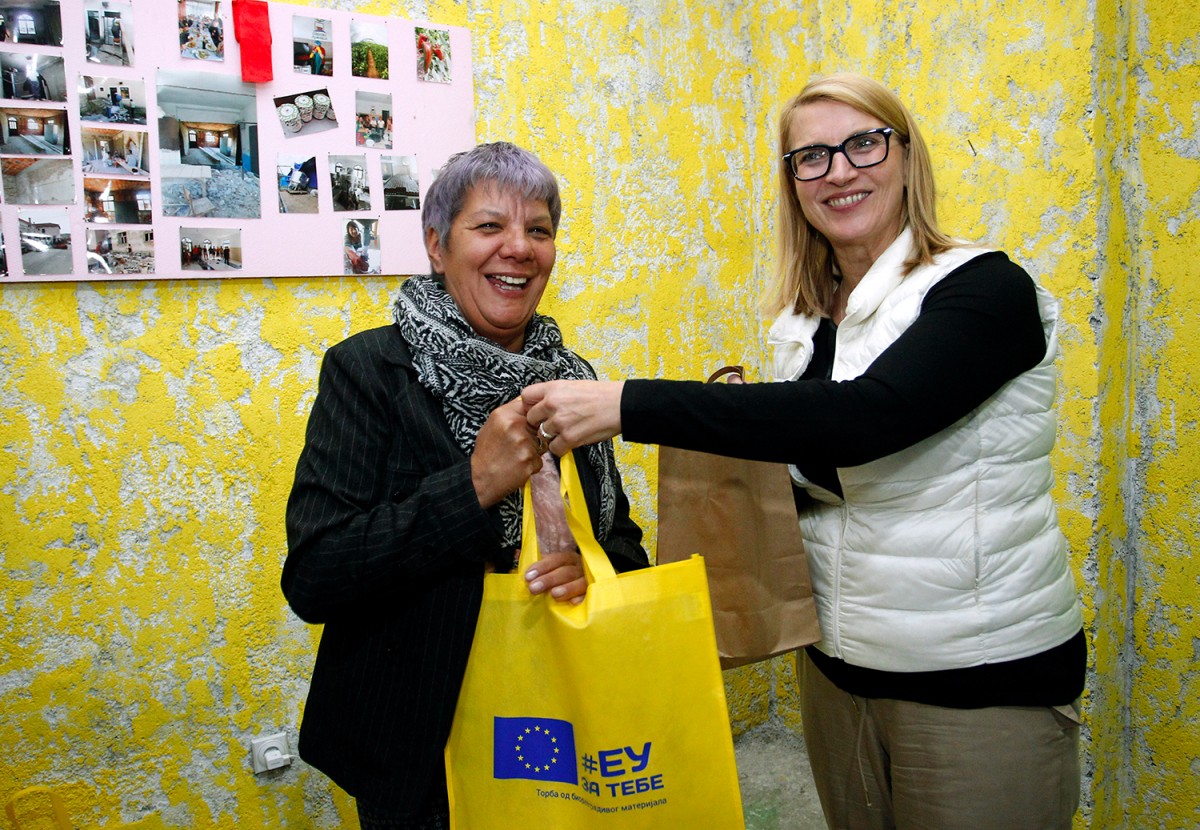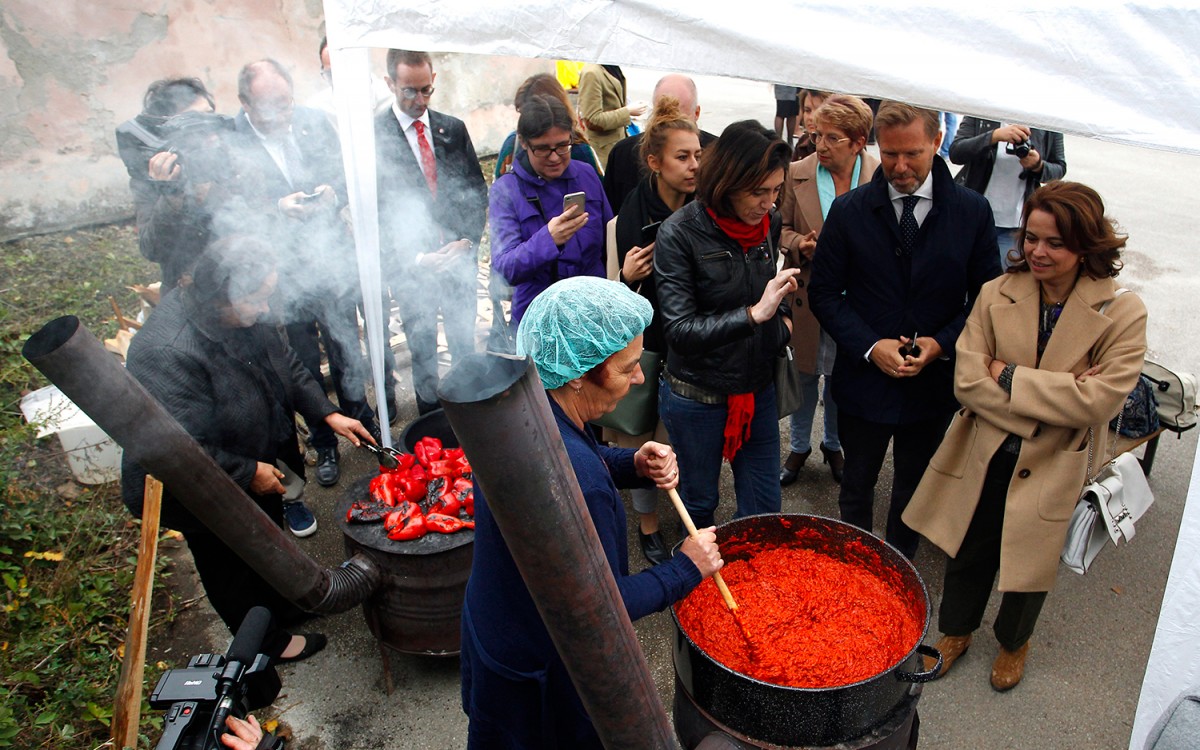Babušnica, Paraćin, Svilajnac, 2 October 2019
Concrete examples of EU Support to Svilajnac, Paraćin and Babušnica
Ajvar, pinđur, ljutenica, pure juices made from organic fruit and vegetables from the village of Gorčinci in the Babušnica municipality are slowly taking over both the domestic and European market.
"With the support from the European Union, amongst other through EU PRO Programme, we received 20 greenhouses and initiated organic production, which was the basis for starting the first women’s cooperative in South Serbia,'' said Karolina Stamenković, the President of the Lužnica Handicrafts Association, adding that even more important was the fact that the Association managed to employ 15 women from rural areas who were previously unemployed.
She noted that with the support from the EU, the Association will continue its work on the economic empowerment of women from rural areas through organic farming, but will also expand onto the neighbouring municipality of Dimitrovgrad.
During their two-day visit to Central and Eastern Serbia, twenty European diplomats, led by the Deputy Head of the EU Delegation to the Republic of Serbia, Mateja Norčič Štamcar, had an opportunity to witness firsthand how avjar was being made in Babušnica. They enjoyed traditional products and music from the Pirot region, and saw EU support in action.
“Over sixty percent of European funds are being donated locally, so we are here to experience European integration in practice” said Deputy Head of the EU Delegation to the Republic of Serbia, Mateja Norčič Štamcar, underlining that this project contributed to achieving gender equality, one of European values, that implies the social and economic empowerment of women.
Babušnica is one of 12 local self-governments in Serbia which has a female Mayor - Slađana Nikolić, with whom the delegation of 20 Deputy Heads of Missions of EU countries in Serbia met in the Culture Centre which was renovated with EU funds through both EU PRO and previously European PROGRES programme.
During the visit, the delegation also went to Paraćin where, aside from meeting the Mayor, Saša Paunović, they had an opportunity to visit the industrial zone Zmič, where 30,000 Euros of EU funds was invested into the construction of necessary infrastructure through EU PRO Programme.
“Two thirds of the European legislation is being implemented locally, therefore, for us from the Delegation of EU, it is very important to note what is happening at the local level. Paraćin is a good example of how things should be done and I believe we achieved very good cooperation” said Mateja Norčič Štamcar, Deputy Head of the EU Delegation.
“I expect that this industrial zone will be the largest employment zone in Pomoravlje in the coming years. With the support from the EU, a public water supply and sewerage networks have been constructed to allow a new block of plots to be opened for the needs of future investors” stated the Paraćin Mayor, Saša Paunović, and added that he expects that in the next five to six years, aside from the industrial park and big enterprises, another 30 to 40 small and medium enterprises will be operating in this zone.
Deputy ambassadors did in fact visit one such enterprise - Natura Gusto, which produces healthy rice snacks and is one of 106 enterprises that received grants through EU PRO.
The delegation also visited Svilajnac where EU has invested around eight million Euros thus far into various development projects.
“We consider Svilajnac an example of good practice in how one local self-government is utilising funds that EU offers in the areas of education, culture, infrastructure, industrialisation,” said Mateja Norčič Štamcar, Deputy Head of the EU Delegation.
After visiting the Natural History Centre, which was constructed with the support from the EU, the delegation went to the Agricultural and Veterinary School, the reconstruction of which the EU funded after the 2014 floods, and spoke with students engaged in agricultural production.
“We are a good example of how a small municipality in Serbia can be a partner to the EU, as well as being a good role model for other local self-governments on how to experience EU at work. EU is not just an unattainable dream, it is everyday life for us - we don’t aim for European funds, we aim for European standards,” said Svilajnac Mayor, Predrag Milanović.



